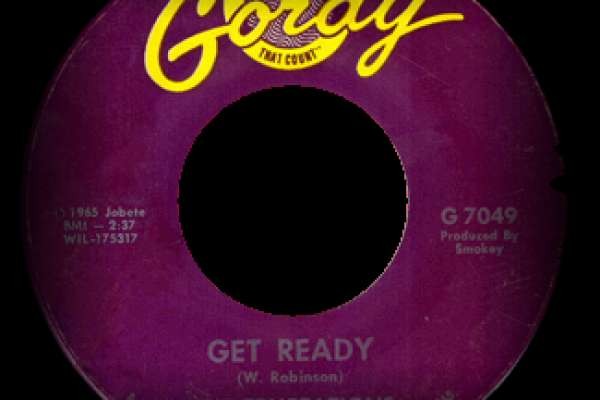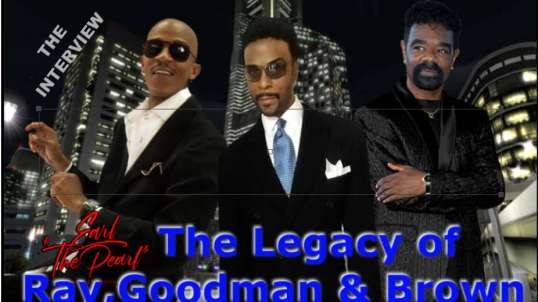1966 is full of Motown landmarks, and they don’t come much bigger than this.
Or, well, do they? Before I ever Got Into Motown, this was one of the obvious touchstones I was always familiar with, one of the ones I just assumed everyone knew. A Top 10 hit here in Britain, it’s certainly a well-known song, and – if it isn’t quite as ubiquitous as My Girl (but then again, what is?) – it’s immediately recognizable, from the second those first few grizzled horn-and-bass pulses come pumping out of the radio. This isn’t the Temptations’ great monument, but it’s surely not far behind, right?
So, it was something of a surprise for me to discover that, while it did the business back home on black radio (becoming the Tempts’ third R&B number one), Get Ready was actually considered something of a flop on the original release, enough to lose Smokey the gig as the Temptations’ main writer/producer. In 1966, Motown valued crossover success far above scoring big on the R&B charts, and when this single limped into the top 30 (quite literally, at number 30) for one week before sinking like a stone, Berry Gordy was deeply unimpressed.
Smokey may have been Gordy’s closest and longest-serving lieutenant, a friend and a trusted collaborator and valued second-in-command, but for Motown’s flagship male group to be shunned so harshly by white radio was not only embarrassing but potentially extremely harmful to Gordy’s overall vision.
After this, Norman Whitfield took over at the helm of the Temptations, effectively for the rest of their top-level career; rather than being the triumphant pinnacle I’d assumed it to be, this record in fact marks the (commercially) disappointing end of a chapter, and of a glorious era.
All of which is not only a shame but also really confusing, because this is truly spectacular.
IF EVER I’M ASKED WHAT MAKES MY DREAMS REAL
It’s not really clear to me what the “problem” was here, at more than fifty years’ remove (gulp!), but I can hazard a guess. This is probably the hottest Temptations cut so far, not only aimed squarely at the dancefloor but with a low, growling, almost menacing edge underneath the hip-shaking groove, all driven by those horns and some phenomenal bass work, and on the basis of that, some people have drawn the simple conclusion that, while Motown had grown rich marrying hot black jazz and R&B grooves to smoother, poppier sounds, put bluntly, this was too black.
And maybe it really is that simple; it’s certainly possible that, even in 1966, this was enough to scare off enough milquetoast whites and their parents (or, more likely, the radio stations they were listening to) to kill its chart chances.
To these modern ears, it’s really not much of a step beyond what Marvin Gaye was doing around the same time, or the Isley Brothers, or Otis Redding… but then I think of what the Stax equivalent of Get Ready might be, and the first song I thought of was Sam and Dave’s Hold On, I’m Comin’, released a few months later, and the exact same thing happened there – top of the R&B chart, squashed miserably on the Hot 100.
It’s tempting to just shrug and chalk it up to America just not being quite ready (making the title a fun double reference, I guess), a cultural situation that would shortly cease to exist; while the civil rights movement was barely getting started addressing the inequalities in American society, the cultural cross-pollination between black and white music that had begun with rock ‘n’ roll, traced its way through the British invasion and, yes, the rise of Motown and their contemporaries in the pop-soul vanguard, was nigh unstoppable.
The rise of a counterculture also aided the more widespread distribution and acceptance of harder-edged sounds that might not previously have found an audience; if Get Ready had emerged two years later, this probably wouldn’t have happened.
Effectively, then, what we have here is a turning point of sorts, a record caught between eras – on the one hand, it’s as beautiful as anything Eddie Kendricks had sung before, and there’s enough of the smooth, irresistible Temptations sound of cuts like The Way You Do The Things You Do to maintain the link with Smokey’s past great work with the group. On the other, with the benefit of hindsight listeners in 1966 simply wouldn’t have had, it clearly seems to presage the future of the Temptations in the latter part of the 1960s, ironically nodding towards a path the group would tread with Norman Whitfield, rather than Smokey, in the years immediately ahead.
There’s more of Stax in this than maybe any big-ticket Motown vocal hit so far, and if Smokey’s own performing past shows up in this one’s DNA (the most obvious Miracles touchstone to me is Going to a Go-Go, though you can definitely discern traces of My Girl Has Gone too), this one sounds harder and more physical, the falsetto vocals and swirling string curlicues offsetting the thump and grind of the rhythm track in ways familiar to us now through funk and disco, but probably alien to many listeners at the time.









No Comments